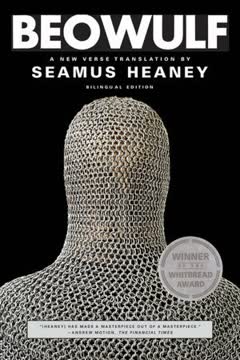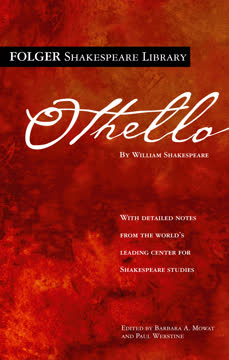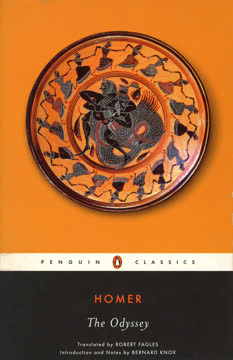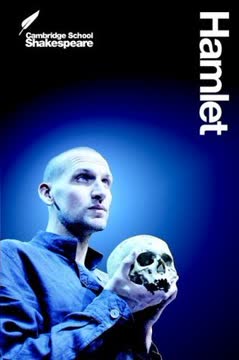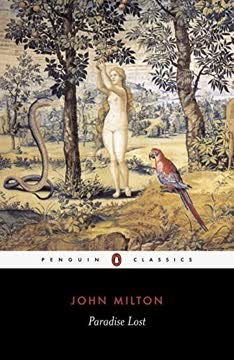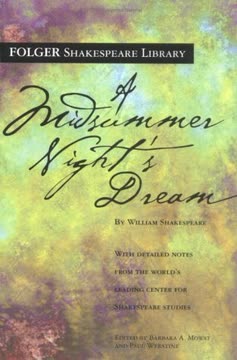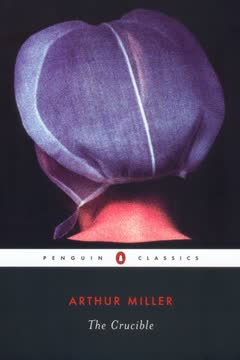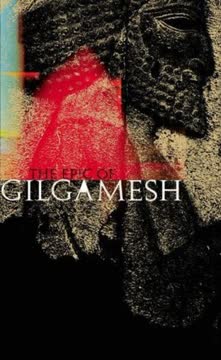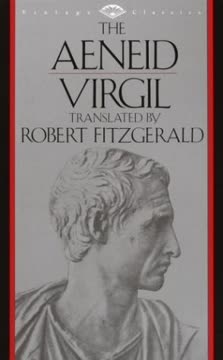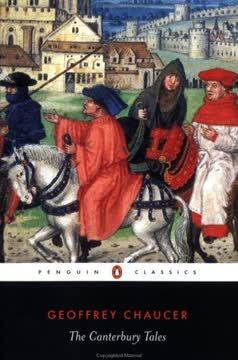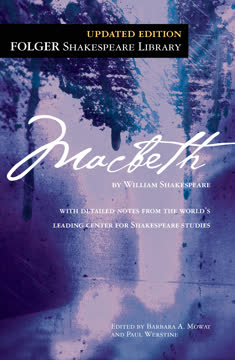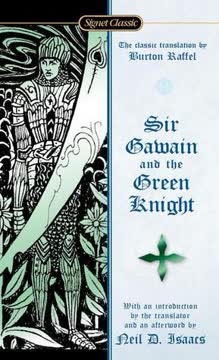Plot Summary
Ancestral Shadows Stir
The tale opens with the memory of Scyld Scefing, a foundling who rose to become a revered king, establishing a dynasty of Danish rulers. His legacy is one of strength, generosity, and the forging of a people's identity. The poem's world is shaped by the deeds of ancestors, their victories and sorrows echoing through generations. The Danes, under Scyld's descendants, thrive, but the shadow of fate and the inevitability of loss linger. This ancestral prelude sets the stage for the coming struggles, reminding all that greatness is both a gift and a burden, and that every hero's story is rooted in the deeds and dreams of those who came before.
Heorot's Golden Hall
King Hrothgar, Scyld's descendant, builds Heorot, a magnificent mead-hall, as a symbol of prosperity and unity. The hall becomes the heart of Danish society, filled with feasting, music, and the sharing of gifts. Yet, beneath the revelry, unease grows. The joy of Heorot stirs envy and rage in Grendel, a monstrous outcast descended from Cain. The hall's golden glow cannot keep out the darkness forever. Hrothgar's achievement, meant to unite and uplift, instead attracts a force of destruction, foreshadowing the fragile balance between civilization and chaos that will define the story.
Grendel's Nightly Terror
Grendel emerges from the moors, driven by hatred for the joy he cannot share. Night after night, he attacks Heorot, slaughtering Hrothgar's warriors and turning the hall into a place of fear and mourning. For twelve years, the Danes suffer, unable to defend themselves or appease the monster. Grendel's violence is relentless, a curse upon the land, and Hrothgar's sorrow deepens as his people's hope fades. The once-proud hall stands empty, a grim reminder that even the greatest achievements can be undone by forces beyond human control.
Beowulf's Heroic Arrival
News of Heorot's plight reaches Beowulf, a mighty warrior of the Geats. Inspired by tales of Grendel's terror and a sense of duty, Beowulf gathers a band of loyal men and sails across the sea to offer his aid. His arrival is met with suspicion and curiosity, but his reputation precedes him. Beowulf's courage and confidence shine as he pledges to rid Heorot of its curse. The Danes, desperate for hope, welcome him, and a new chapter of the hall's story begins, marked by the promise of deliverance and the testing of heroism.
Boasts and Banquets
In Heorot, Beowulf is honored with a feast, but not all are convinced of his prowess. Unferth, a Danish warrior, challenges Beowulf's reputation, recalling a youthful swimming contest. Beowulf responds with dignity and recounts his past victories, turning the challenge into a testament of his strength and fate. The exchange cements Beowulf's resolve and earns him respect. Queen Wealhtheow welcomes him, and the hall's atmosphere shifts from despair to anticipation. The night's revelry is tinged with tension, as all await the coming confrontation with Grendel. This scene exemplifies the heroic boasting and gift-giving that structures the narrative.
The Monster's Midnight Raid
As night falls, Hrothgar entrusts Heorot to Beowulf. The Geatish hero, eschewing weapons to fight Grendel on equal terms, waits with his men. Grendel bursts into the hall, slaughtering a warrior before seizing Beowulf. But Beowulf's grip is unbreakable, and a desperate struggle ensues. The hall shakes with their battle, but Beowulf's strength prevails. Grendel, mortally wounded, flees into the night, leaving behind his severed arm as a gruesome trophy. The Danes awaken to a new dawn, their tormentor vanquished, and hope restored to Heorot.
Grendel's Defeat and Flight
The Danes gather to marvel at Grendel's arm, hung high in the hall. Songs of Beowulf's triumph spread, and the hero is celebrated as a savior. Yet, the victory is bittersweet. The violence of the night has left scars, and the threat of vengeance lingers. Hrothgar praises Beowulf, offering him kinship and treasure. The hall is restored, cleansed of blood and fear, but the memory of terror remains. The fragile peace is a reminder that every victory carries the seeds of future conflict, and that heroism is both a blessing and a burden.
Songs of Triumph
Heorot is filled with joy as Hrothgar rewards Beowulf and his men with lavish gifts. Minstrels sing of past heroes, weaving Beowulf's deeds into the tapestry of legend. The hall's splendor is restored, and the bonds of loyalty and gratitude are strengthened. Yet, amid the festivities, stories of old feuds and tragic destinies are told, hinting at the cycles of vengeance and fate that haunt even the greatest of halls. The celebration is both a moment of respite and a reminder of the ever-present shadow of fate.
Grendel's Mother's Revenge
The joy of victory is short-lived. Grendel's mother, driven by grief and vengeance, attacks Heorot, killing Hrothgar's trusted advisor and reclaiming her son's severed arm. The Danes are plunged back into mourning, and Hrothgar is overcome with sorrow. He appeals to Beowulf once more, describing the haunted mere where the monster's mother dwells. The cycle of vengeance continues, and Beowulf prepares for a new and more perilous challenge, knowing that true heroism demands facing not just one, but many trials.
Descent into the Mere
Guided by Hrothgar, Beowulf and his men track Grendel's mother to her lair beneath a haunted lake. The journey is fraught with danger, as monstrous creatures lurk in the depths. Beowulf arms himself with a legendary sword and plunges into the water, descending into an alien world where the laws of men do not apply. The descent is both literal and symbolic—a confrontation with the unknown, the monstrous, and the limits of human strength. Beowulf's courage is tested as never before.
The Battle Below
In the underwater lair, Beowulf faces Grendel's mother in a brutal struggle. His borrowed sword fails, but he discovers a giant's blade and uses it to slay the monster. He also finds Grendel's corpse and beheads it, taking the head and the sword's hilt as trophies. Beowulf's victory is hard-won, achieved through a combination of strength, courage, and divine favor. He returns to the surface, greeted as a hero once more. The cycle of violence is broken, at least for now, and the power of fate and the gods is acknowledged.
Gifts, Wisdom, and Farewell
Hrothgar showers Beowulf with treasures and imparts words of wisdom, warning against pride and the fleeting nature of life. The old king's speech is a meditation on the limits of human power and the certainty of death. Beowulf listens, humbled by the weight of experience. The Geats prepare to return home, their mission accomplished. The bonds between peoples are strengthened through gift-giving, but the lessons of mortality and humility linger, shaping Beowulf's understanding of his own destiny.
Beowulf's Homecoming
Beowulf and his men sail back to Geatland, bearing gifts and glory. He is welcomed by King Hygelac and Queen Hygd, recounting his adventures and sharing the treasures he has received. Beowulf's reputation grows, and he is honored as a hero among his people. The peace and prosperity of Geatland are secured, but the seeds of future conflict are sown in tales of feuds and alliances. Beowulf's journey from youth to maturity is marked by loyalty, generosity, and the forging of a legacy.
Peace, Feuds, and Fate
Beowulf becomes king after the deaths of Hygelac and Heardred, ruling wisely for fifty years. His reign is marked by peace, but the memory of old feuds and the threat of violence never fully fade. The poem reflects on the cycles of vengeance and the fragility of human achievements. Fate, or wyrd, looms over all, reminding even the greatest kings that their time is limited. Beowulf's story becomes one of stewardship, responsibility, and the acceptance of mortality.
The Dragon's Awakening
A thief disturbs the dragon's hoard, awakening the ancient beast. The dragon, enraged, unleashes fire and destruction upon the Geats, burning homes and threatening the kingdom. Beowulf, now an aging king, feels the weight of responsibility and prepares to face the dragon alone. The threat is both external and internal—a test of courage, leadership, and the ability to confront the consequences of the past. The stage is set for Beowulf's final and greatest challenge.
Beowulf's Final Stand
Beowulf, accompanied by a small band of warriors, confronts the dragon. As the battle rages, his companions flee in fear, save for the loyal Wiglaf. Together, they face the dragon's fury. Beowulf slays the beast but is mortally wounded. The victory is costly, achieved at the price of the hero's life. In his final moments, Beowulf reflects on his legacy, his loyalty to his people, and the inevitability of death. The end of his life marks the end of an era, and the beginning of uncertainty for his people.
Wiglaf's Loyalty
Wiglaf, the only warrior to stand by Beowulf, tends to his dying lord and rebukes the other warriors for their cowardice. He retrieves the dragon's treasure at Beowulf's request, allowing the hero a final glimpse of the hoard he has won for his people. Wiglaf's loyalty is contrasted with the failure of the others, highlighting the values of courage, honor, and fidelity. The future of the Geats is uncertain, as the loss of their greatest protector leaves them vulnerable to enemies and fate.
The Hero's Funeral
Beowulf's body is laid on a funeral pyre, surrounded by his people's grief and the treasures he won. A great barrow is raised in his honor, a beacon for future generations. The Geats mourn not only their king but the passing of a heroic age. Songs of praise and sorrow echo across the land, as the poem closes with a meditation on the nature of greatness, the inevitability of loss, and the enduring power of memory. Beowulf's legacy lives on, a testament to the enduring human quest for meaning in the face of mortality.
Characters
Beowulf
Beowulf is the central figure, a Geatish warrior whose strength, courage, and sense of duty define him. Initially motivated by glory and the desire to help Hrothgar, he matures into a wise and selfless king. His relationships are marked by loyalty—to his king, his men, and his people. Psychologically, Beowulf is driven by a need to prove himself, but also by a deep sense of responsibility. His development is a journey from youthful bravado to reflective leadership, culminating in his acceptance of mortality and the limits of human achievement. Beowulf's legacy is both personal and communal, embodying the values and anxieties of his world.
Hrothgar
Hrothgar, king of the Danes, is a figure of authority, generosity, and sorrow. He represents the responsibilities and vulnerabilities of leadership. His relationship with Beowulf is paternal, offering both gratitude and cautionary wisdom. Hrothgar's psychoanalysis reveals a man haunted by loss and the knowledge that even the greatest achievements are impermanent. His advice to Beowulf about pride and the inevitability of death reflects a deep understanding of fate and the human condition. Hrothgar's arc is one of transition—from active ruler to contemplative elder, passing on the lessons of experience.
Wiglaf
Wiglaf is a young warrior who stands by Beowulf during the final battle with the dragon. His devotion contrasts sharply with the cowardice of the other warriors. Wiglaf's role is both supportive and symbolic—he represents the next generation and the enduring values of courage and loyalty. Psychologically, he is motivated by gratitude, honor, and a sense of duty to his lord. Wiglaf's actions ensure that Beowulf's legacy is preserved, but also highlight the fragility of heroism in a changing world.
Grendel
Grendel is the monstrous antagonist, driven by hatred for the joy and community he cannot share. His violence is both personal and symbolic—a manifestation of the outsider's rage against society. Grendel's relationship to the Danes is one of perpetual conflict, rooted in his exclusion and cursed lineage. Psychologically, he is a figure of resentment and nihilism, his actions reflecting the destructive power of alienation. Grendel's defeat is a triumph for the community, but his legacy lingers in the cycle of vengeance.
Grendel's Mother
Grendel's mother is a more ambiguous antagonist, motivated by grief and the desire for revenge. Her attack on Heorot is both a continuation of the cycle of violence and a deeply personal act. She represents the primal, maternal aspect of vengeance, and her lair beneath the mere is a symbolic underworld. Psychologically, she is driven by loss and rage, her actions a mirror of the human need for justice and retribution. Her defeat by Beowulf is hard-won, underscoring the complexity of heroism.
Hrothgar's Queen, Wealhtheow
Wealhtheow is a stabilizing presence in Heorot, embodying the values of hospitality, diplomacy, and maternal care. Her role is to maintain harmony and ensure the succession of the royal line. Psychologically, she is both nurturing and politically astute, aware of the fragility of peace and the importance of alliances. Her interactions with Beowulf and Hrothgar reveal the subtle power of women in a patriarchal society.
Unferth
Unferth is a Danish warrior who initially challenges Beowulf's reputation, motivated by envy and self-doubt. His role is to test the hero's resolve and to represent the internal divisions within the community. Psychologically, Unferth is insecure, seeking validation through rivalry. His eventual support of Beowulf, lending him the sword Hrunting, marks a shift from antagonism to respect, illustrating the potential for personal growth and reconciliation.
Hygelac
Hygelac is the king of the Geats and Beowulf's uncle. He represents the stability and continuity of the Geatish people. His relationship with Beowulf is one of trust and mutual respect. Psychologically, Hygelac is a figure of authority and support, providing the context for Beowulf's return and later succession. His death marks a turning point, thrusting Beowulf into the role of king and deepening the poem's meditation on fate and leadership.
The Dragon
The dragon is the final antagonist, awakened by the theft of a single cup from its hoard. It represents the inevitability of death, the destructive power of greed, and the consequences of past actions. Psychologically, the dragon is less a character than a symbol—a force of nature that tests Beowulf's courage and the resilience of his people. Its defeat comes at a great cost, underscoring the tragic dimension of heroism.
The Geatish and Danish Retainers
The warriors who serve Beowulf and Hrothgar represent the broader community. Their actions—whether loyal or cowardly—reflect the values and vulnerabilities of their societies. Psychologically, they are motivated by fear, loyalty, and the desire for honor. Their failures and successes serve as a commentary on the challenges of collective action and the importance of individual courage.
Plot Devices
Cycles of Vengeance and Fate
The narrative is structured around cycles of violence—Grendel's attacks, his mother's revenge, and the dragon's wrath—all triggered by past actions and unresolved feuds. This cyclical structure reinforces the theme of fate (wyrd), suggesting that individuals and societies are bound by forces beyond their control. Foreshadowing is used throughout, with songs and speeches hinting at future tragedies and the limits of human achievement. The poem's episodic structure, moving from one great challenge to the next, mirrors the unpredictability of life and the inevitability of loss.
Heroic Boasting and Gift-Giving
Boasting is a key narrative device, allowing characters to assert their worth and establish their place in the social order. Gift-giving reinforces bonds of loyalty and gratitude, but also creates obligations and expectations. These rituals structure the narrative, marking transitions between peace and conflict, and highlighting the values of honor, reputation, and reciprocity.
Descent and Ascent
Beowulf's descent into the mere to face Grendel's mother, and his final confrontation with the dragon, are both literal and symbolic journeys into darkness and the unknown. These episodes serve as tests of character, courage, and faith, and mark the hero's progression from youth to maturity, and finally to mortality. The use of supernatural elements—monsters, enchanted swords, and prophetic warnings—heightens the sense of a world shaped by forces both human and divine.
Analysis
Beowulf endures as a foundational work of Western literature because it grapples with timeless questions of heroism, mortality, and the meaning of legacy. The poem's world is one of constant tension between civilization and chaos, where every achievement is shadowed by the threat of loss. Through Beowulf's journey—from ambitious youth to wise king and, finally, to self-sacrificing hero—the narrative explores the costs and rewards of greatness. The cycles of violence and vengeance reflect the anxieties of a society struggling to maintain order in the face of fate and the unknown. The poem's emphasis on boasting, gift-giving, and loyalty reveals the social fabric that binds individuals to their communities, while its meditations on pride, humility, and the inevitability of death offer a profound commentary on the human condition. In a modern context, Beowulf invites readers to reflect on the nature of leadership, the responsibilities of power, and the enduring quest for meaning in a world marked by uncertainty and change.
Last updated:
Review Summary
Beowulf is a beloved Old English epic poem that has captivated readers for centuries. Many praise its heroic tale, poetic language, and cultural significance. Translations by Seamus Heaney and Maria Dahvana Headley are particularly popular, with Heaney's version lauded for its accessibility and Headley's for its modern, energetic approach. Readers appreciate the poem's themes of courage, loyalty, and fate, as well as its vivid depictions of monsters and battles. While some find the language challenging, most agree that Beowulf remains a powerful and influential work of literature.
Similar Books
Download PDF
Download EPUB
.epub digital book format is ideal for reading ebooks on phones, tablets, and e-readers.
